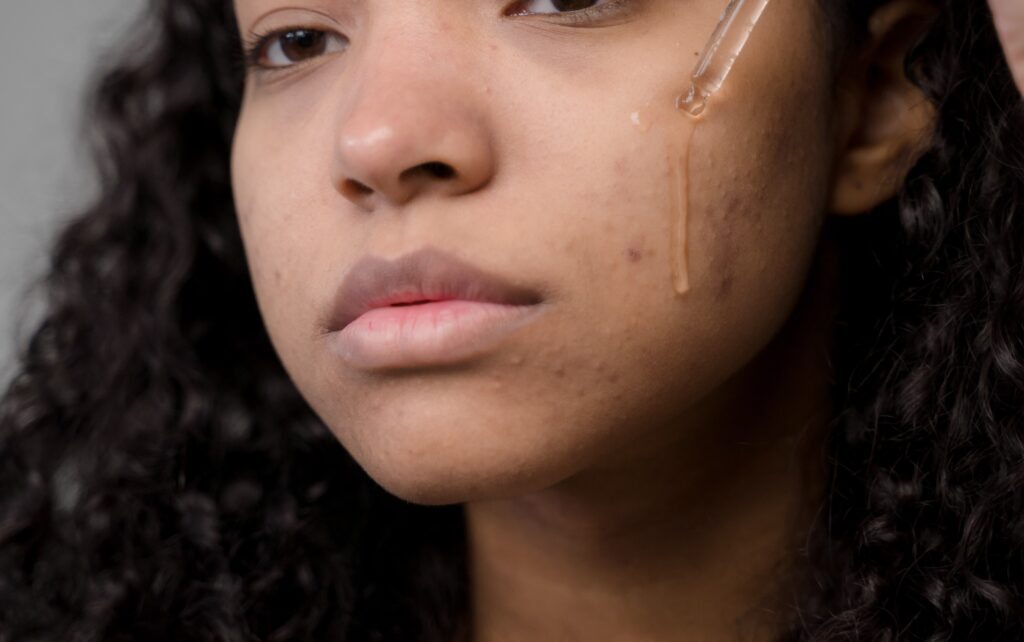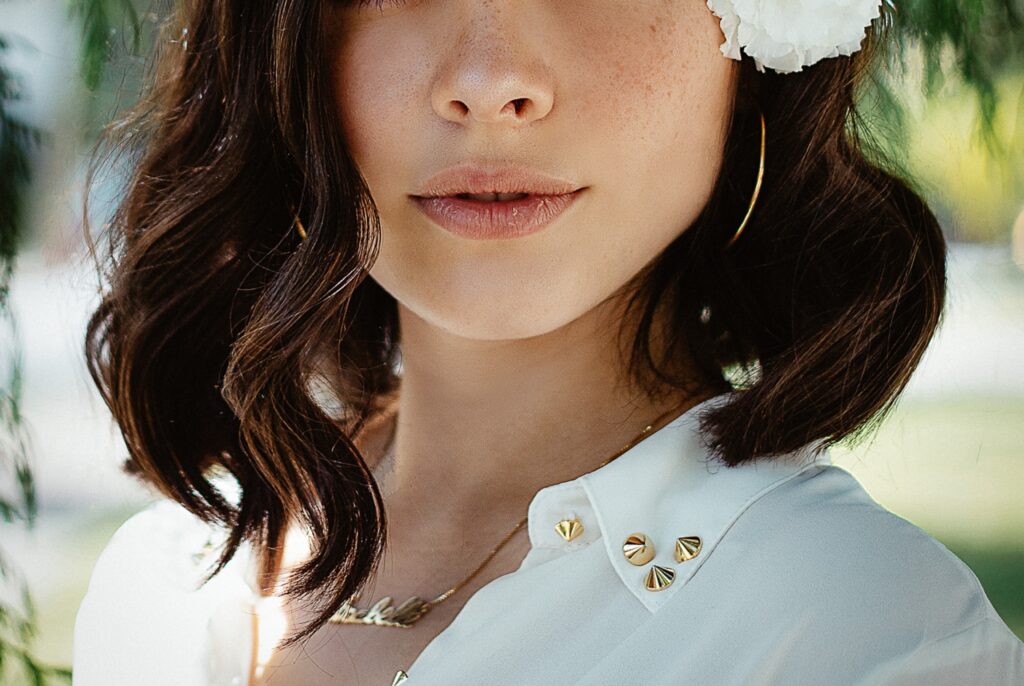Does tanning help rosacea? Are you a rosacea sufferer who dreams of having clearer, healthier skin? You may have heard that getting a tan can help improve the appearance of rosacea. But can we really trust this statement?
In this article, we delve into the relationship between tanning and rosacea to uncover the facts about does tanning help rosacea.
As someone who specializes in crafting informative articles on skincare, I understand the importance of accurate and reliable information. That’s why we’re here to separate fact from fiction when it comes to tanning and rosacea.
While a tan can give the illusion of a more even complexion, it’s essential to understand how tanning affects rosacea-prone skin.
We’ll explore the potential benefits of sunlight exposure and its impact on rosacea symptoms. However, it’s important not to dismiss the risks and potential harm that excessive sun exposure can bring.
Join us as we dive into the truth about tanning and rosacea and answer the question: Does tanning help rosacea? By the end of this article, you’ll have a better understanding of how soaking up the sun can affect your skin and whether it’s a viable solution for managing your rosacea symptoms.
Understanding rosacea and its effects on the skin
Rosacea is a chronic skin condition that affects millions of individuals worldwide. This condition is often recognized by the presence of redness, flushing, and visible blood vessels on the facial skin.
Those who suffer from rosacea often seek ways to manage and alleviate the symptoms. One common question that arises is does tanning help rosacea to improve.
Rosacea is a complex condition with various triggers. While exposure to sunlight can temporarily reduce redness and inflammation, the long-term effects of tanning on rosacea are not beneficial.
In fact, prolonged sun exposure can worsen the symptoms and lead to further skin damage. It is essential to understand the underlying causes of rosacea and seek appropriate treatments rather than relying on tanning as a solution.
Debunking the myth: Can tanning help rosacea?
No, tanning cannot help rosacea. In fact, tanning can make rosacea worse. Sun exposure is one of the most common triggers of rosacea, and it can cause the skin to become red, inflamed, and bumpy.
Tanning beds emit ultraviolet (UV) rays, which are just as harmful to the skin as sunlight. If you have rosacea, it is important to avoid sun exposure and tanning beds.
There is a common misconception that tanning can camouflage the redness associated with rosacea. While it is true that a tan can temporarily mask the symptoms, it does not address the underlying causes of the condition. Moreover, tanning can lead to increased sensitivity and inflammation, exacerbating the symptoms of rosacea in the long run.
It is important to note that the benefits of tanning for rosacea are only temporary. Once the tan fades, the redness and flushing associated with rosacea will reappear.
Additionally, individuals with rosacea often have sensitive skin, making them more prone to sunburn and damage from UV radiation. Therefore, relying on tanning as a solution for rosacea is not advisable.

The potential risks of tanning for individuals with rosacea
After knowing the answer to does tanning help rosacea, let’s explore its potential risks. While tanning may provide temporary relief for individuals with rosacea, it is crucial to consider the potential risks associated with excessive sun exposure.
UV radiation from the sun can cause long-term damage to the skin, including premature aging, sunspots, and an increased risk of skin cancer.
Individuals with rosacea often have sensitive skin that is more susceptible to sunburn. Sunburn can trigger a flare-up of rosacea symptoms, leading to increased:
- Redness
- Inflammation
- And discomfort
It is essential to protect the skin from harmful UV radiation by using sunscreen, wearing protective clothing, and seeking shade during peak sun hours.
Alternative treatments for rosacea
While tanning may not be a recommended treatment for rosacea, there are various alternative options available that can help manage the symptoms. Consulting with a dermatologist is essential to determine the most suitable treatment plan based on individual needs and skin type.
Some common treatments for rosacea include:
- Topical creams
- Oral medications
- And laser therapy.
Topical creams containing ingredients such as azelaic acid or metronidazole can help reduce redness and inflammation.
In more serious situations, doctors might recommend oral medications like antibiotics or isotretinoin. Laser therapy can target visible blood vessels and reduce redness effectively.
Lifestyle changes to manage rosacea symptoms
In addition to medical treatments, certain lifestyle changes can also help manage rosacea symptoms. It is important to identify and avoid triggers that worsen the condition. Common triggers include:
- Spicy foods
- Alcohol
- Hot beverages
- And extreme temperatures
Ensuring the overall health of your skin involves a combination of practices, which encompass maintaining a balanced diet, engaging in regular physical activity, and effectively managing your stress levels.
Skincare tips for individuals with rosacea
Taking care of the skin is essential for individuals with rosacea. Using gentle, fragrance-free skincare products can help reduce irritation and inflammation.
It is advisable to cleanse the skin with a mild cleanser and moisturize regularly to maintain the skin’s barrier function. Avoiding harsh scrubs or exfoliants is crucial, as they can further aggravate the skin.
When applying makeup, opt for non-comedogenic and non-irritating products. Green-tinted primers or color correctors can help neutralize the redness associated with rosacea.
It is important to remove makeup thoroughly and gently cleanse the face before going to bed to prevent clogged pores and further skin irritation.
Consulting with a dermatologist for personalized advice
Every individual’s experience with rosacea is unique, and what works for one person may not work for another. Consulting with a dermatologist is crucial to receive personalized advice and treatment options tailored to specific needs.
A dermatologist can assess the severity of the condition, identify triggers, and recommend suitable skincare products and treatments.
The importance of sun protection
Sun protection is paramount for individuals with rosacea. It’s crucial to use a broad-spectrum sunscreen with an SPF of 30 or higher consistently, even when the sky is overcast. Sunscreen should be applied generously and reapplied every two hours, especially when spending prolonged periods under the sun.
In addition to sunscreen, wearing protective clothing such as wide-brimmed hats and sunglasses can help shield the face from harmful UV radiation.
Seeking shade during peak sun hours, typically between 10 am and 4 pm, can also reduce sun exposure and minimize the risk of triggering rosacea flare-ups.

Self-care practices to improve skin health for individuals with rosacea
In addition to medical treatments and skincare routines, practicing self-care can significantly improve skin health for individuals with rosacea.
Managing stress levels through techniques such as meditation, yoga, or deep breathing exercises can help reduce the likelihood of flare-ups.
Getting enough sleep and maintaining a healthy lifestyle, including a balanced diet and regular exercise, can also contribute to overall skin health.
It is important to listen to your body and prioritize self-care practices that promote physical and emotional well-being.
Conclusion: Does tanning help rosacea?
While tanning may provide temporary relief for individuals with rosacea, it is not a recommended long-term solution. The potential risks associated with excessive sun exposure outweigh the temporary benefits of tanning.
Instead, individuals with rosacea should focus on alternative treatments, lifestyle changes, and proper skincare routines to manage the symptoms effectively.
Consulting with a dermatologist is essential to receive personalized advice on does tanning help rosacea and treatment options tailored to specific needs. Protecting the skin from harmful UV radiation through sun protection measures such as sunscreen, protective clothing, and seeking shade is crucial for individuals with rosacea.
By making informed choices and prioritizing self-care practices, individuals with rosacea can improve their skin health and manage the condition more effectively.

